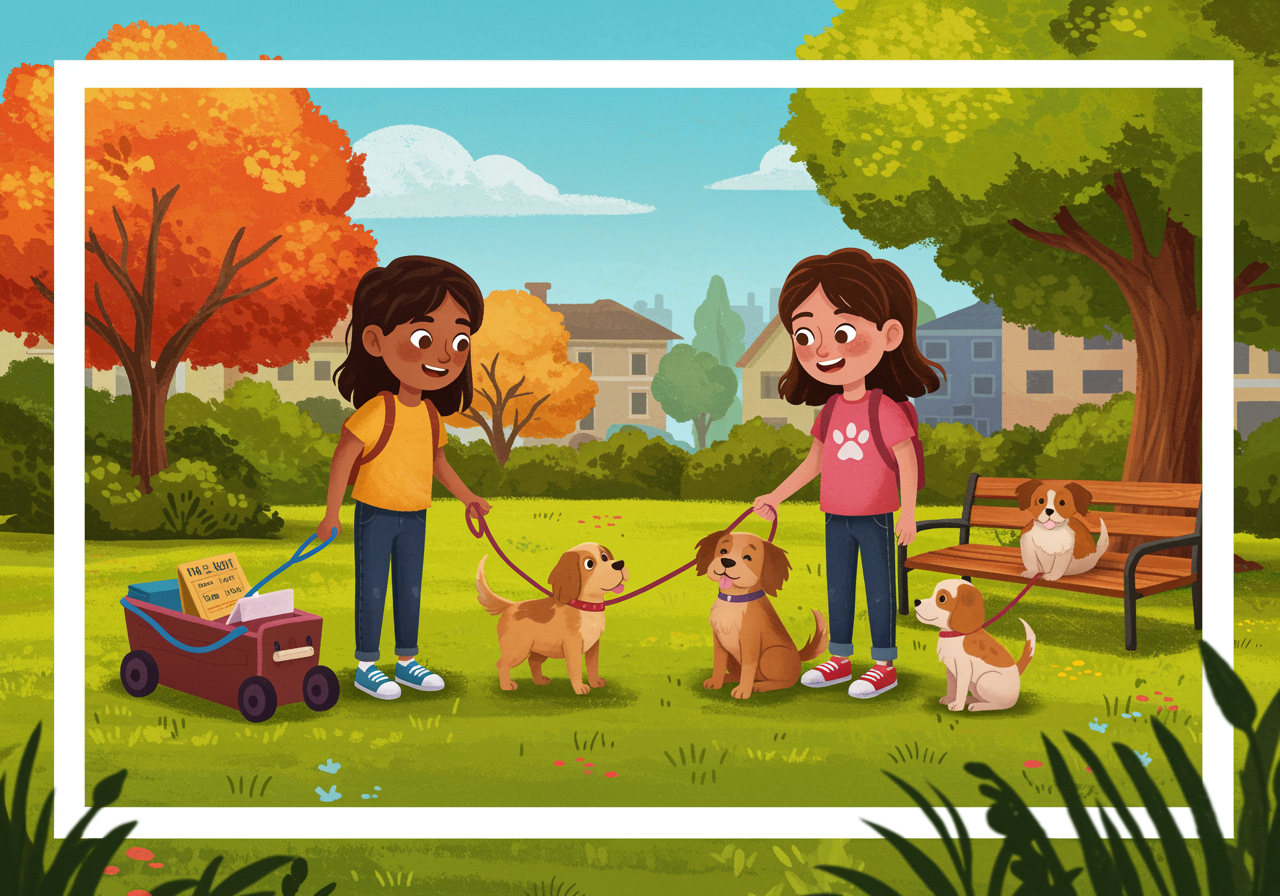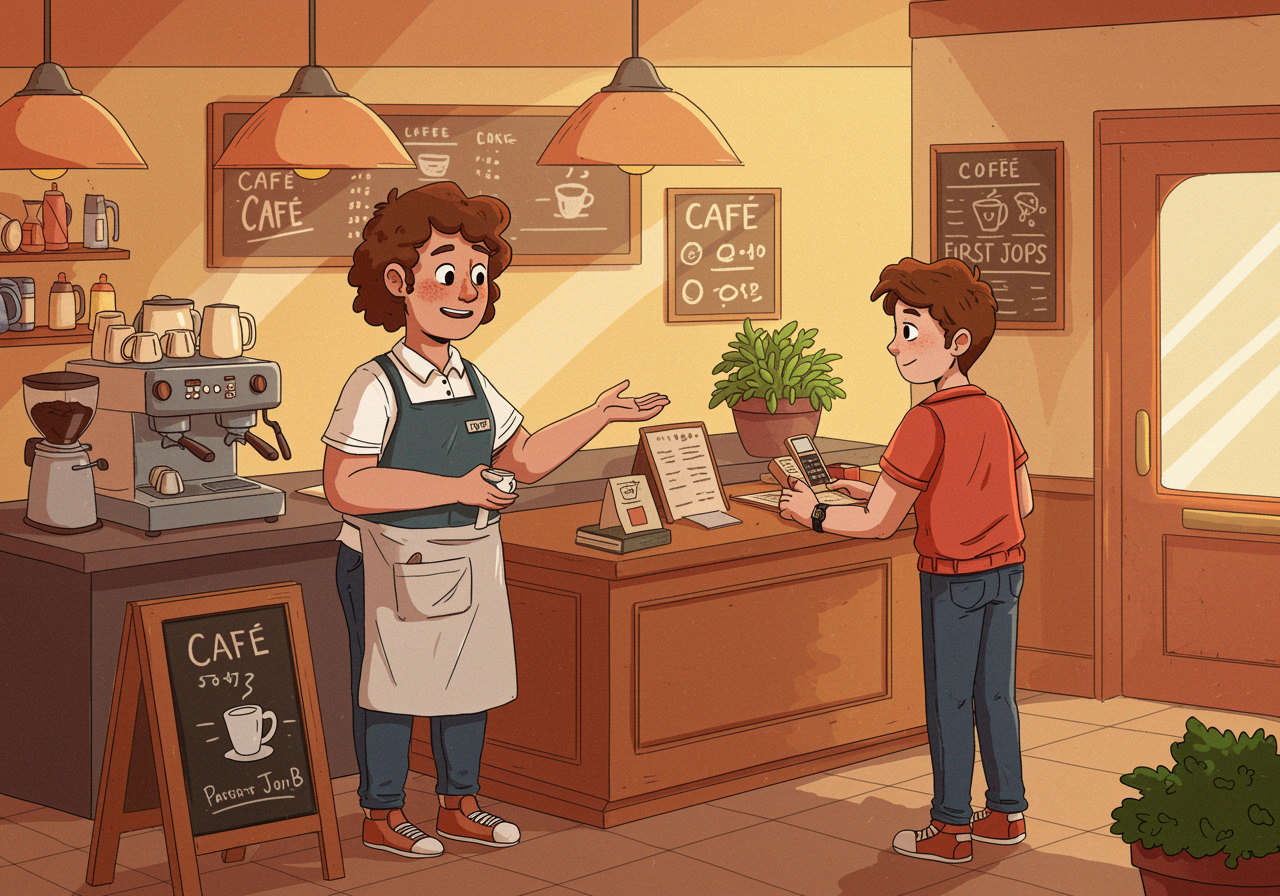Money Makers, World Shakers: How Smart Businesses Win by Helping Everyone

Discover how the coolest companies make money AND make the world better at the same time
Ever wonder how your favorite brands manage to be successful while also doing amazing things for their communities?
Overview
Think about your favorite local pizza place that sponsors your school's sports teams, or that app you love that plants trees every time you use it. These businesses figured out something amazing: helping their community actually helps them make MORE money, not less! When companies take care of the people and places around them, customers love them more, employees work harder, and everyone wins. It's like discovering that eating vegetables can actually taste great AND make you stronger.

Understand in 30 Seconds
Get up to speed quickly
- Win-Win is Real: Smart businesses know that making money and helping people aren't opposite goals – they work together like peanut butter and jelly.
- Happy Communities = Happy Customers: When businesses help their neighborhoods thrive, people want to support them back by buying their products and telling friends about them.
- Purpose Attracts Talent: The best workers want jobs where they feel good about what they're doing, so mission-driven companies get the most creative and hardworking teams.
- Future-Proof Strategy: Companies that think long-term about their impact build stronger relationships and avoid problems that could hurt their business later.
Real Life Scenario
Situations you can relate to
Imagine you and your friend decide to start a dog-walking business in your neighborhood. You could just focus on making money, but what if you also donated part of your earnings to the local animal shelter? Suddenly, pet owners feel great about hiring you because they know they're helping animals in need. The shelter might even recommend your service to people adopting new dogs. Your business grows because people trust you and feel good about supporting you. Plus, you feel amazing knowing your work helps homeless pets find families. That's exactly how real businesses create positive impact while making profit – they find ways to do good that also make business sense.

Role Play
Spark a conversation with “what if” scenarios
What if you invented an app that helps people find lost pets in your town?
- Role play: Take turns being the app creator and a worried pet owner. Discuss how the app could make money (maybe through premium features) while helping reunite families with their pets.
What if you opened a cafe that only hired teenagers looking for their first job?
- Role play: Role-play being the cafe owner explaining to a customer why this approach helps the community AND makes the business special and successful.
What if your family started a cleaning service that used only eco-friendly products?
- Role play: Practice explaining to potential customers how this choice protects their health and the environment while still getting their homes sparkling clean.
FAQs
Frequently asked questions people want to know
Don't businesses lose money when they spend it on helping the community?
Actually, studies show that businesses with strong community programs often make MORE money because customers prefer to support companies that share their values.
How do businesses decide which causes to support?
Smart businesses pick causes that connect to their products or values, like a bookstore supporting literacy programs or a sports store sponsoring youth leagues.
Can small businesses make a community impact like big corporations do?
Absolutely! Sometimes small businesses have even bigger impacts because they know their community personally and can respond quickly to local needs.
Examples in the Wild
See how this works day to day
- Patagonia donates 1% of all sales to environmental causes and has given over $140 million to grassroots organizations while building a fiercely loyal customer base (Patagonia Corporate Reports 2023)
- Ben & Jerry's has advocated for social justice issues since 1985 and consistently ranks as one of the most trusted brands in America (Harris Poll Corporate Reputation Survey 2023)
- TOMS Shoes has donated over 100 million pairs of shoes to children in need through their 'One for One' program while building a globally recognized brand (TOMS Impact Report 2023)
- Local coffee shop chains like Intelligentsia partner with farmers directly, paying premium prices for beans while building customer loyalty through transparency (Harvard Business Review 2023)
In Summary
What you should know before you start
- Businesses can absolutely make money while making their communities better – it's not an either/or choice
- Customers today actively choose to support companies that align with their values and help causes they care about
- Community-focused businesses attract better employees, more loyal customers, and stronger partnerships
- The key is finding genuine ways to help that also make business sense, not just doing good deeds as an afterthought
Pro-tip for Parents
You got this!
If your teen seems skeptical about businesses actually caring (hello, natural teenage cynicism!), don't dismiss their concerns. Instead, help them research companies they're curious about and look for evidence of real impact versus just marketing talk. Check if companies publish detailed reports about their community work, if their actions match their words over time, and if independent sources verify their claims. This critical thinking skill will serve them well as both consumers and future business leaders.

Keep an Eye Out For
Find these examples in everyday life
- Local businesses in your area that sponsor community events, support schools, or hire from specific groups
- News stories about companies changing their practices to be more environmentally or socially responsible
- New products or services that solve community problems while building successful businesses
Explore Beyond
Look up these related research topics
- How do cooperatives work differently from traditional businesses?
- What is social entrepreneurship and how do B-Corps operate?
- How do consumers influence business decisions through their purchasing choices?